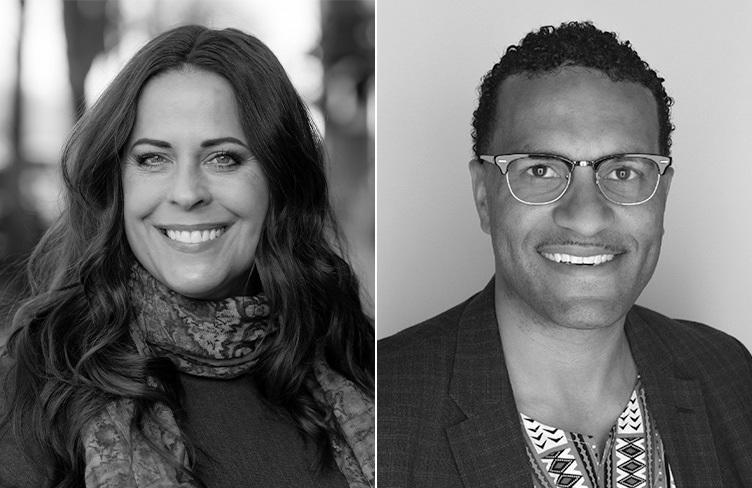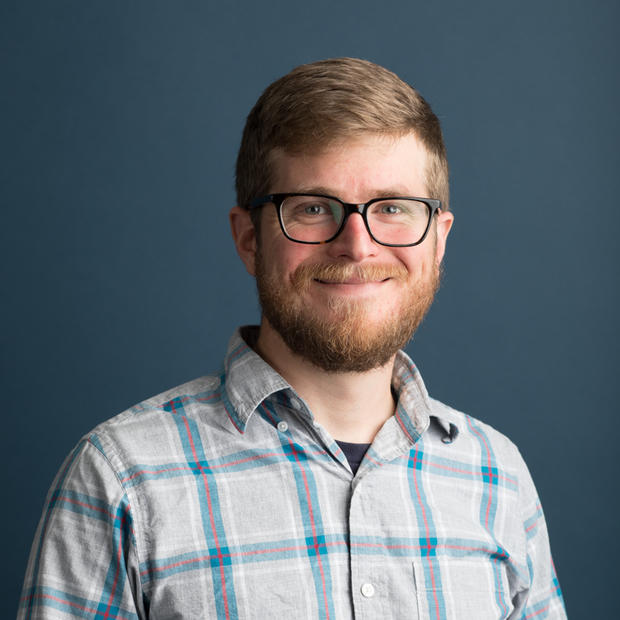Costa spent the better part of two decades working as a user-experience designer for Amazon. While there, she helped co-found Amazon Employees for Climate Justice, calling on the company to take action around climate change and address the disparate environmental impacts its warehouse and distribution centers have on communities of color.
In the early days of the pandemic, Costa led calls for the company to improve safety for its warehouse workers who were working on site and therefore at greater risk of illness and death from COVID-19. That resulted in Costa’s high-profile firing, alongside another employee activist, in April 2020, which the National Labor Relations Board ultimately ruled illegal retaliation.
Costa’s experience organizing within Amazon combined with her continued focus on climate activism led her into the City Council race.
“I really recognize the huge problems that our city and our nation and really our planet are facing and I want to be a part of the solution,” said Costa. “I believe in starting where you are. … So this is me, trying to make change where I am. And a big reason why I want to tackle these big problems is because I have kids and I think about their future and all of our kids’ futures.”
Saka has built his legal career in the tech sector. He currently works as general counsel for Meta (formerly known as Facebook). Prior to that Saka worked as a lawyer at Microsoft. The Air Force veteran has also been appointed to several city and county commissions over the years, including the King County Charter Review Commission, the King County Redistricting Commission and a Seattle Police Chief search committee.
For Saka, it’s a feeling that Seattle’s public safety has taken a nosedive that’s driving him to seek a seat on the City Council.
“I'm running to make sure the city is as safe of a place as it can be,” said Saka. “I've been personally disappointed with the current direction of the Seattle City Council and some policy choices that they've made. While well-intended, they haven't produced the outcomes and results that I think the public is demanding. The stakes for my three kids and kids across the city have never been higher.”
Crosscut sat down with both District 1 candidates to talk about the issues they want to tackle if elected, their policy ideas for accomplishing change, how the city should pay for it and much more.
The issues
Public safety
For Saka, public safety is paramount. Saka blames the City Council’s calls to reduce the police budget in the wake of 2020’s Black Lives Matter protests as the turning point for public safety in Seattle. Though Seattle Councilmembers walked back their pledge and did not cut the police budget (save for moving parking enforcement to a different department), Saka thinks it contributed to the departure of 400-500 police officers, in turn leading to problems with crime in both his neighborhood of Delridge and across the city.
Saka wants to rebuild a police force of at least 1,500 deployable officers from the current 900-1000 officers at SPD and push for a return to community policing, in which officers walk their beats and know neighbors and business owners. The city’s current recruitment efforts include marketing campaigns and $30,000 hiring bonuses for experienced officers.
Saka told Crosscut that a better union collective bargaining agreement between the Seattle Police Officers Guild (SPOG) and the city would help with the recruiting effort by empowering police to do their jobs while holding them to high standards. The city and SPOG have been negotiating a new contract since 2021. The contract is key for advancing police reform since it can either help or hinder accountability efforts.
Costa similarly wants to hire more police officers. She told Crosscut that doing so will require maintaining the hiring bonus program while finding ways to improve officer morale. “In order to keep the bar high [for officer quality], we have to be a place that officers really want to come to.”
Both candidates said they support creating a non-police response to mental health and other public crises that are better addressed by social workers and mental health professionals. And both said they want to see more investments in programs that address poverty and other root causes of crime and public disorder.
Climate
Unsurprisingly, given her background, Costa wants to tackle climate resilience as a councilmember. She wants to use federal Inflation Reduction Act money to expand an existing effort to create “climate resilience hubs” and upgrade all community centers, libraries and schools with air filtration and heat pumps for heating and air conditioning to serve as refuges during smoke season and extreme heat and cold snaps. She also wants to electrify the Port of Seattle and short-haul trucking, mitigate flooding in South Park, bolster the city’s electrical grid and invest in offshore wind power, among other climate ideas.
Saka did not raise climate as a policy issue in his interview with Crosscut.
After Crosscut’s article on the D1 race was published, Saka added a section on climate priorities to his campaign website. It includes ideas such as improving energy efficiency in buildings, building more climate resilience hubs and investing in EV charging infrastructure among others.
Homelessness and Housing
To address homelessness, Saka said he wants to expand the availability of all shelter types, including creating tiny home villages, converting motels into longer-term shelters and establishing safe lots for RV parking. He also wants the city to fund construction of more subsidized affordable housing to provide people with permanent places to live.
Costa said rather than spending money on encampment sweeps that displace people experiencing homelessness, the city should be investing that money in permanent affordable housing. In the meantime, she similarly wants Seattle to build more tiny homes and expand motel shelter options.
Both candidates also recognized that Seattle is increasingly unaffordable for middle-class families. Saka said that he wants to increase investments in workforce housing and allow for some market-rate density “where it makes sense,” while streamlining permitting and cutting red tape to speed its delivery.
Costa similarly wants to speed the construction of new housing by issuing permits faster, perhaps by hiring additional city staff to work on the issue. She is more bullish on the need for market-rate housing alongside subsidized affordable housing. She said, “We’re coming in to [the next comprehensive plan process] with a deficit. There’s no amount of housing that we could build that would be too much. It’s just going to be such an important issue.”
Drug crisis
The City Council recently voted to align city municipal code with the new state law making drug possession and public use a gross misdemeanor. The debate around the worsening drug crisis centers on whether to arrest and prosecute people with substance-use disorders or to bolster treatment options.
Costa said she does not support jailing drug users. “There's just a lack of evidence to support that it works. And there’s quite a bit of evidence to support that it makes things worse,” she said.
Instead, she wants Seattle to build more treatment centers and emergency housing options and increase outreach by social workers.
Saka said he would’ve voted for the first drug bill that went in front of the City Council in June. The earlier version did not provide as much guidance to the police department on when and how officers should arrest drug users versus diverting them to services and treatment. Saka said “that proposed bill, it would have put us directly in line with state law, and I think it would have recognized appropriately that public drug use is absolutely a public health crisis.”
How should Seattle pay for everything?
Expanding housing and shelter options, social services, the police force, climate infrastructure and everything else will, of course, cost a lot of money. And the next crop of City Councilmembers will enter office facing declining tax revenues brought on by slowed growth and inflation.
Saka said his starting place would be a full audit of the existing city budget to make sure programs are providing the “best bang for their buck” and that Seattle is operating within the existing city budget. The call for an audit echoes the Seattle Metropolitan Chamber of Commerce’s talking points around the city budget and the potential for new tax revenue.
Saka said that he also wants to seek new public/private partnerships that could help pay for city priorities, especially around affordable housing. Then, as a third option, the city should explore new tax revenue.
Costa, by contrast, supports the new tax ideas recently suggested by the city’s Revenue Stabilization Workgroup.
“We have a ton of money in this town,” she said. “We need to bring it back into the town for everyone’s benefit, including for the benefit of big companies and the big businesses.”
Fundraising and endorsements
As of this writing, Saka has raised over $190,000 in donations, the most of any candidate in all seven City Council races so far. Costa has received just shy of $129,000 in donations.
Saka also has an independent expenditure committee, Elliott Bay Neighbors, spending money on his behalf. That group is funded by big-business money, including Dunn Lumber Company, Costco founder Jim Sinegal, Seattle Hospitality Group and developer George Petrie. Petrie donates on both sides of the aisle, but has given tens of thousands of dollars to GOP candidates in recent years, including a donation for Donald Trump’s reelection. The committee has raised nearly $90,000 and has spent $20,000 so far on campaign mailers to support Saka.
Costa has received endorsements from many unions, including SEIU 925, UFCW 3000, Teamsters 117 and the MLK Labor Council. Other notable endorsements include the King County Democrats, the National Women’s Political Caucus, Sierra Club, current Seattle City Councilmember Teresa Mosqueda, former Seattle Councilmembers Jim Street and Mike O’Brien and former Seattle Mayor Mike McGinn.
Saka has been endorsed by Seattle Hospitality for Progress, the Master Builders Association’s Affordable Housing Council, the 34th District Democrats, VoteVets and Iron Workers Local 86. His individual endorsers include King County Councilmember Girmay Zahilay, Port of Seattle Commissioner Ryan Calkins and former Seattle Mayors Greg Nickels and Norm Rice.
Update: This story was updated to include information about Saka's climate priorities that were added to his campaign website after publication of the article.
Get the latest in election news
In the weeks leading up to each election (and occasionally during the legislative session), Crosscut's Election newsletter will provide you with everything you need to know about races, candidates and policy in WA state.



